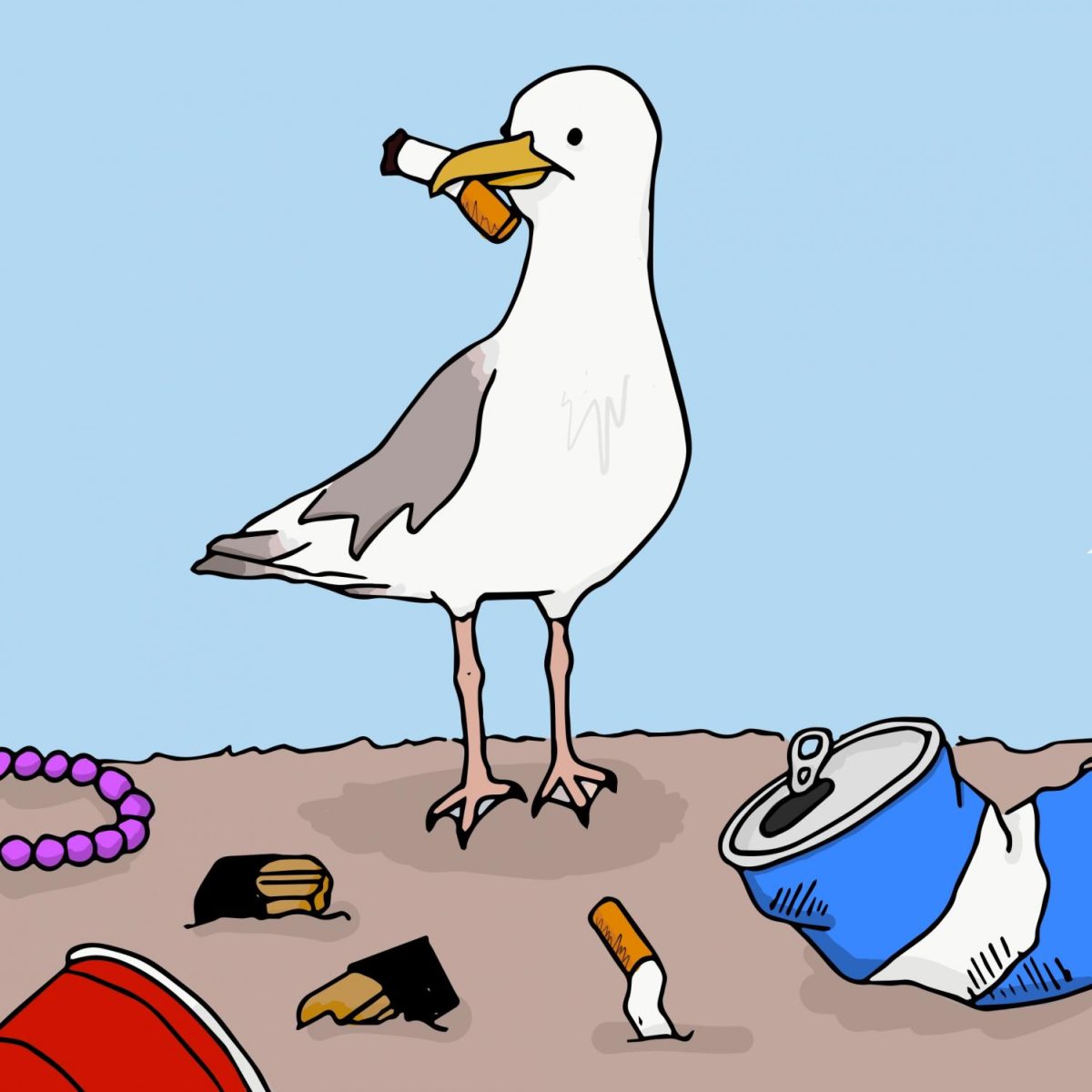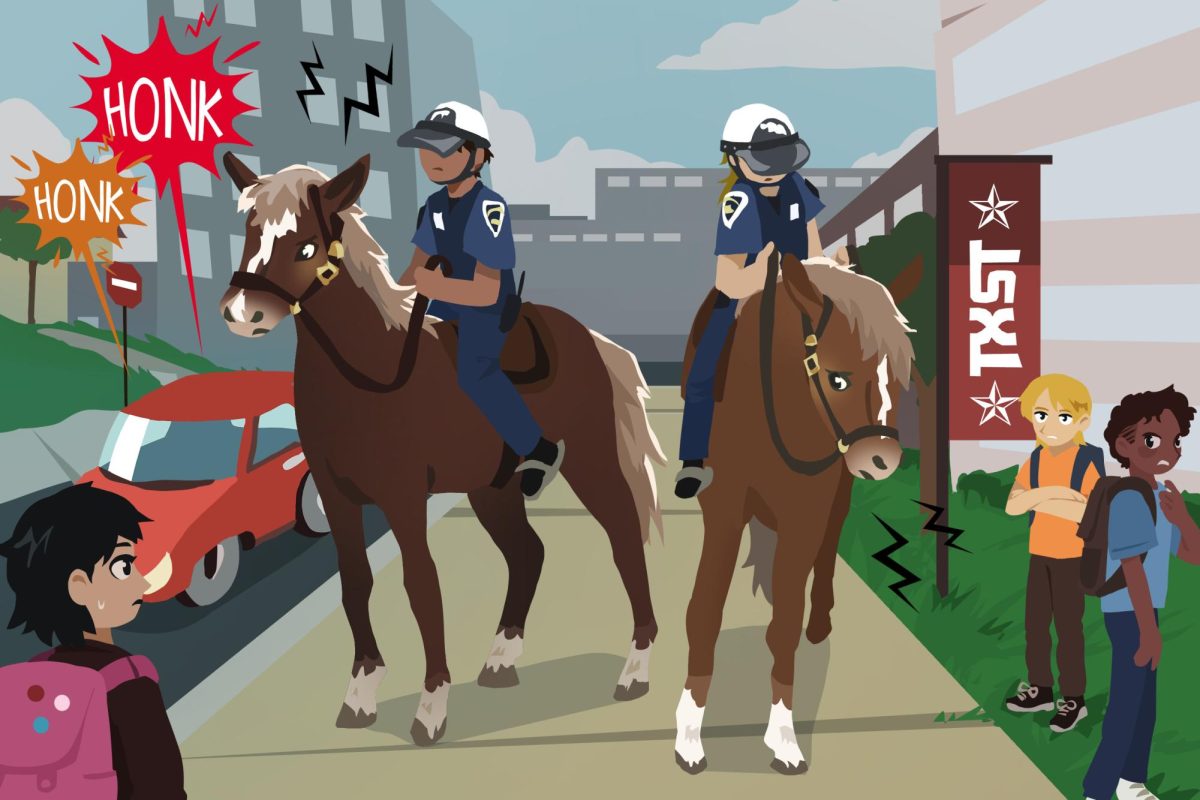Migratory birds already face major threats to their lives on their journey—window collisions against large glassy buildings and disorienting artificial light at night can kill hundreds of birds in one night. But when party-ready Spring Breakers are added into the mix, even more risks to wildlife appear.
As Spring Break draws near, many Bobcats are considering a fun getaway on the Texas coast with their friends—a much-needed break from the stresses of academic life. Places like South Padre Island can attract 18,000 visitors at a time and thousands more converge on Galveston and Corpus Christi.
However, March also marks the beginning of many birds’ spring migration, during which more than 380 species pass through the Texas coastal region, stopping for food, drink and a rest on their way home to their breeding grounds.
Last year alone, more than 30 tons of litter were removed from the beaches of Port Aransas and Corpus Christi. This trash is often eaten by birds, starving or poisoning them and can otherwise injure birds through entanglement, which can trap birds until they starve and die or leave them with wounds that are vulnerable to infection.
Students enjoying their Spring Break are likely to bring several things to the beach—beverages in plastic, metal and glass containers; cheap plastic accessories like sunglasses they don’t mind losing; disposable plates food—without even thinking about where they will end up.
Despite well-publicized efforts to ‘save the turtles’ by using reusable straws, students are likely to leave behind hundreds of pounds of trash—whether on purpose or on accident—this year.
As Bobcats plan their coastal vacation, they should remember to stay aware of their surroundings and notice wildlife, such as the gulls and terns often seen on the Texas coast, trying to use the same spot— and leave them alone.
They use the beach longer than these few day vacationers, for foraging and nesting, and the overwhelming tourist presence can cause them stress or leave behind trash that can injure them.
Spring breakers can also be considerate and bring their own bags to collect their trash. Waste receptacles on beaches fill up quickly, so if when one packs out what they pack in, they can avoid unintentional pollution from overflowing bins.
Visitors should focus on only bringing recyclables, especially because they can find local recycling centers to drop off waste on the way home—Texas even has monofilament recovery and recycling programs where people can drop off old fishing line.
Spring break is a well-deserved break from academic life, but students must consider that, as they let loose on the beach, they could be putting local wildlife through considerable hardship.
Beaches are delicate ecosystems, subject to damage by erosion—which can be sped up by inconsiderate driving and walking over them. The dunes many coastal species rely on take hundreds of years to form and host plants and animals only found in those specific locations.
It may be tempting to take home shells and sand as a memento of a visit, but if every one of the thousands of visitors to the Texas coast did the same, the beaches would be stripped bare. Take plenty of pictures and support local businesses who sell keepsakes instead.
Spring break arrangements are temporary. Visitors get to come back home, but the environment and surrounding habitat remain to deal with the consequences—a week’s worth of damage can last an animal’s lifetime.
– Toni Mac Crossan is a biology graduate student
Opinion: Be considerate of wildlife this Spring Break
March 10, 2020
Donate to The University Star
Your donation will support the student journalists of Texas State University. Your contribution will allow us to purchase equipment and cover our annual website hosting costs.

























